Top 10 Greatest MenThe globe has witnessed many great brains and masters. This article lists the top ten greatest guys in the world, and they are without a doubt the finest men ever. Discover who the best person in the world is by scrolling down the list of the top ten greatest men in the world. There have been many great men in the world who have made significant contributions to the well-being of others. We selected the best men based on Michael H. Hart's book The 100: A Ranking of the Most Influential Persons in History. Let's discover who the best person on the planet is and the greatest men on the planet. Here is the list of the top 10 greatest men in the world. 1. Buddha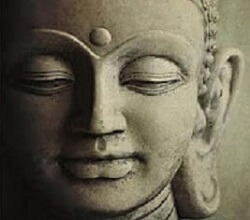
Gautama Buddha is the name given to Buddha, who is renowned as the Light of Asia. Buddha's real name was Siddartha Gautama and was ancient India's spiritual teacher and philosopher. He was the founder of Buddhism and was born in Nepal. In ancient India, the term buddha was used by a variety of religious organizations and had a variety of meanings. Still, it became most closely linked with the Buddhist tradition. It came to imply an enlightened being, awakened from the slumber of ignorance and attained liberation from suffering. Buddhists, his disciples, propagated the faith that is now known as Buddhism. According to many Buddhist traditions, there have been Buddhas in the past, and there will be Buddhas in the future. Some Buddhist schools believe that each historical epoch has just one Buddha, while others believe that all creatures will eventually become buddhas since they have a buddha nature (tathagatagarbha). 2. Muhammad ibn Abdullah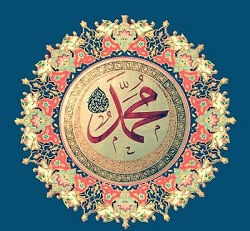
Muhammad ibn Abdullah was a religious, political, and social figure in the Arab world. He was the founder of the Muslim faith. He was a prophet, according to Islam, who was inspired to teach and confirm Adam's, Abraham's, Jesus', Moses', and other prophets' monotheistic doctrines. Muhammad is regarded as God's ultimate prophet in all of Islam's major sects. However, several current denominations disagree with this viewpoint. Muhammad is regarded as God's ultimate prophet in all of Islam's major sects. He is often regarded as the greatest individual who has ever lived. Muhammad is claimed to have been born in Mecca in 570 and died in Medina in 632 after being compelled to leave with his followers in 622. Muhammad was born in Mecca in 570 AD (now in Saudi Arabia). His grandpa and uncle raised him since his father died before he was born. He came from a Quraysh family that was impoverished yet respected. Meccan politics and trade were important to the family. 3. Isaac Newton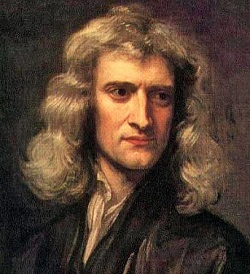
Issac Newton was a physicist, natural philosopher, mathematician, astronomer, alchemist, and theologian. He was born on Christmas Day, 1642, and Galileo Galilei died the same year at Arcetri, near Florence. Newton later picked up his notion for a mathematical science of motion and completed his work. Newton was a tiny and weak baby who was not expected to survive. He was born without a father. He quickly lost his mother, as she married a second time within two years; her husband, a preacher Barnabas Smith, left little Isaac with his grandmother and relocated to a nearby community to raise a boy and two girls. When Newton arrived at Cambridge in 1661, the Scientific Revolution was well underway, and many of the foundational books of contemporary science had already been published. 4. Jesus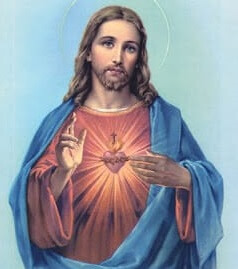
To Christians, Jesus was both a religious leader and a god. He was regarded as God's Son. He was the incarnation of God and the major character of Christianity. Many Christians revere him, and Christianity is the world's most popular religion. Throughout history, the book "The Jesus chronicles", the life narrative of Jesus has been the most widely translated work on the planet. Jesus' stories are among the most well-known (e.g., Nativity). The Christian faith is practiced by 33% of the world's population. That indicates that Jesus is the most significant person in the lives of 33% of the world's population. Islamic countries make up about 21% of the world's population. Jesus is the second most important prophet in Islam. That indicates that Jesus is an important element of 54 percent of the world's religions. A large proportion of atheists and agnostics are aware of Jesus. "Christian civilisation" is a term used to describe Western Civilization. The depictions of Jesus are among the most well-known. 5. Confucius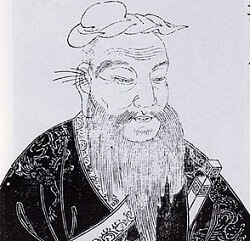
Confucius was a social philosopher and thinker. He founded Confucianism. His teachings and ideas changed the way people thought and lived throughout China, Korea, Japan, Vietnam, and Indonesia. Confucius (about 551-479 BCE) has been depicted as a teacher, counsellor, editor, philosopher, reformer, and prophet at various points in Chinese history. Confucius, a Latinized combination of Kong's surname with the honorific suffix "Master" (fuzi), has also become a global metonym representing several features of traditional East Asian civilization. Confucius is perhaps the most important thinker in East Asian history because of his link with many of East Asia's core beliefs and cultural practices and his casting as a precursor of "Eastern" thinking in Early Modern Europe. In Chinese history, Confucius was born around the close of the spring and autumn Period (770-481 BCE). His home was in Lu, an eastern Chinese regional state in what is now Shandong province's central and southern regions. Like other regional states at the period, Lu was linked to the Zhou dynasty's imperial court by history, culture, and familial connections (dating back to the dynasty's foundation, when Zhou kings' relatives were enfeoffed as heads of the regional states), and moral responsibilities. 6. Paul of Tarsus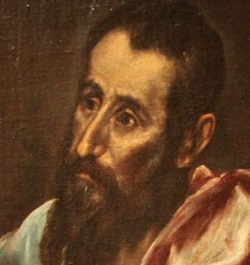
Paul of Tarsus was a Christian apostle and early Christian missionary credited for preaching and establishing Christianity outside of Palestine, particularly among the Romans. He was the author of multiple letters in the Bible's New Testament. Thirteen of the New Testament's 27 books are assigned to Paul, while almost half of another, Acts of the Apostles, is devoted to his life and accomplishments. As a result, Paul and the individuals he inspired are responsible for almost half of the New Testament. However, only 7 of the 13 letters may be considered completely genuine (dictated by Paul himself). 7. CàiLún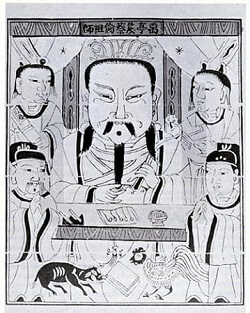
Cài Ln was credited with inventing paper. He was a Chinese political officer credited with inventing the papermaking process. Since the world cannot function without papers, his creation is one of the finest. CaiLun was a eunuch who joined the imperial palace staff in 75 CE and rose through the ranks to become head eunuch under the Dong (Eastern) Han dynasty's emperor Hedi (reigned 88-105/106) in the year 89. Cai came up with making sheets of paper consisting of macerated tree bark, hemp waste, old rags, and fishnets about the year 105. The resulting paper was superior in writing quality to pure silk fabric (at the time's primary writing surface), was far less expensive to create, and had more plentiful sources. Cai informed the emperor of his discoveries, who praised him. In the year 114, Cai was made a marquess. 8. Johannes Gutenberg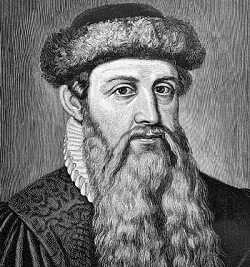
Johannes Gutenberg was a printer from Germany. He was the first to create the mechanical printing press in Europe. Gutenberg's work ushered in the European Printing Revolution and was recognized as a millennium milestone, ushering in the modern era of human history. Gutenberg's the printing machine was a watershed moment in history since it made books widely available and ushered in an "information revolution." He made a metal alloy that could melt easily and cool quickly to form a durable, reusable type, oil-based ink that could be made thick enough to adhere well to metal type and transfer well to vellum or paper, and a new press. This was likely adapted from those used in the production of wine, oil, or paper, and is thought to have been among the components of his invention. None of these characteristics were present in the European technology for stamping letters on diverse surfaces or in woodblock printing at the time. 9. Christopher Columbus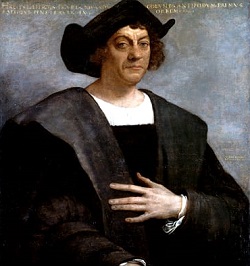
Christopher Columbus was a sailor and a navigator. He was an Italian colonizer and navigator. His expeditions raised European understanding of the continents of the Americas. In the 1990s, many publications about Columbus appeared, and archaeologists' and anthropologists' perspectives began to supplement those of sailors and historians. This endeavor sparked a lot of discussions. There was also a significant movement in perspective and interpretation, with the previous pro-European worldview giving way to one created by the people of the America themselves. According to the traditional view, Columbus' "discovery" of the America was a tremendous victory. He acted as a hero by completing the four trips, bringing immense material wealth to Spain and other European countries, and allowing European colonization of the Americas. However, a more contemporary approach has focused on the devastating aspects of European conquest, stressing, for example, the terrible impact of the slave trade and the ravages of imported illness on indigenous peoples in the Caribbean and on the American continents. As a result, the sensation of triumph has waned, and the image of Columbus as a hero has been replaced, for many, by that of a flawed man. While this second perspective seldom casts doubt on Columbus's honesty or navigational talents, it does decisively deprive him of his position of honor. Political activists of all stripes have gotten involved in the issue, making it even more difficult to reconcile these opposing viewpoints. 10. Albert Einstein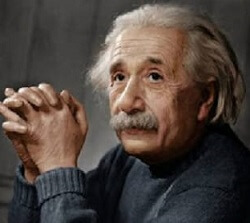
Albert Einstein is a well-known scientist across the world. He was a theoretical physicist who was born in Germany. His theory of relativity influenced the world, particularly the mass-energy equivalency equation E = mc2. He was one of the world's most brilliant physicists. Even individuals who don't grasp the underlying physics of E = mc2 - the scientist's equation that helped explain special relativity - are familiar with it. Einstein is also recognized for his general theory of relativity (which explains gravity) and the photoelectric effect (which explains how electrons behave under particular conditions). He won the Nobel Prize in Physics in 1921. Einstein also endeavoured in vain to unite all of the universe's forces in a single theory, or theory of everything, which he was still working on when he died. Einstein was born on March 14, 1879, in Ulm, Germany, a city with little over 120,000 people today. There is a modest memorial plaque where his house used to be (it was destroyed during World War II).
Next TopicTop 10 Natural Disasters
|
 For Videos Join Our Youtube Channel: Join Now
For Videos Join Our Youtube Channel: Join Now
Feedback
- Send your Feedback to [email protected]
Help Others, Please Share










